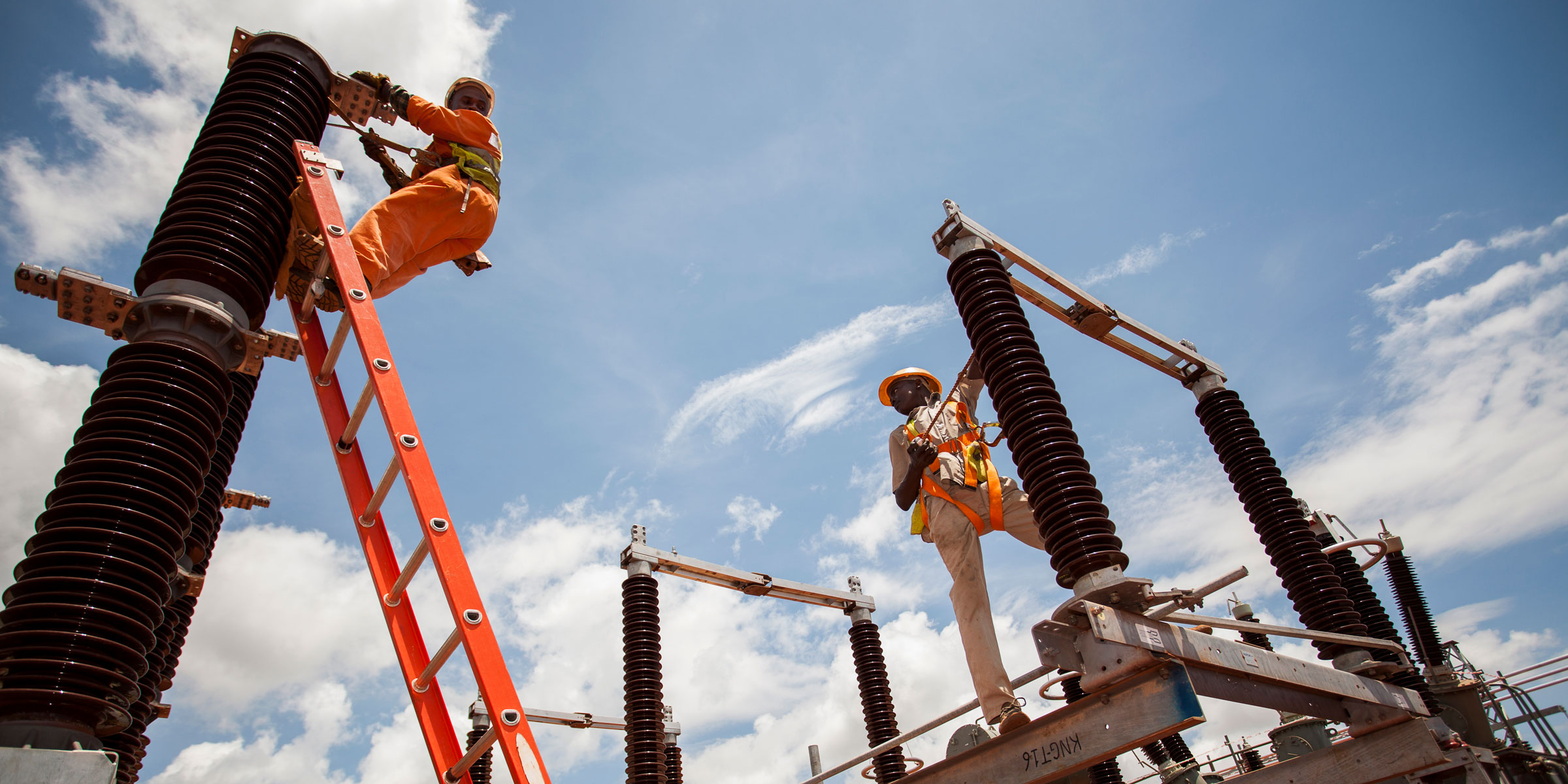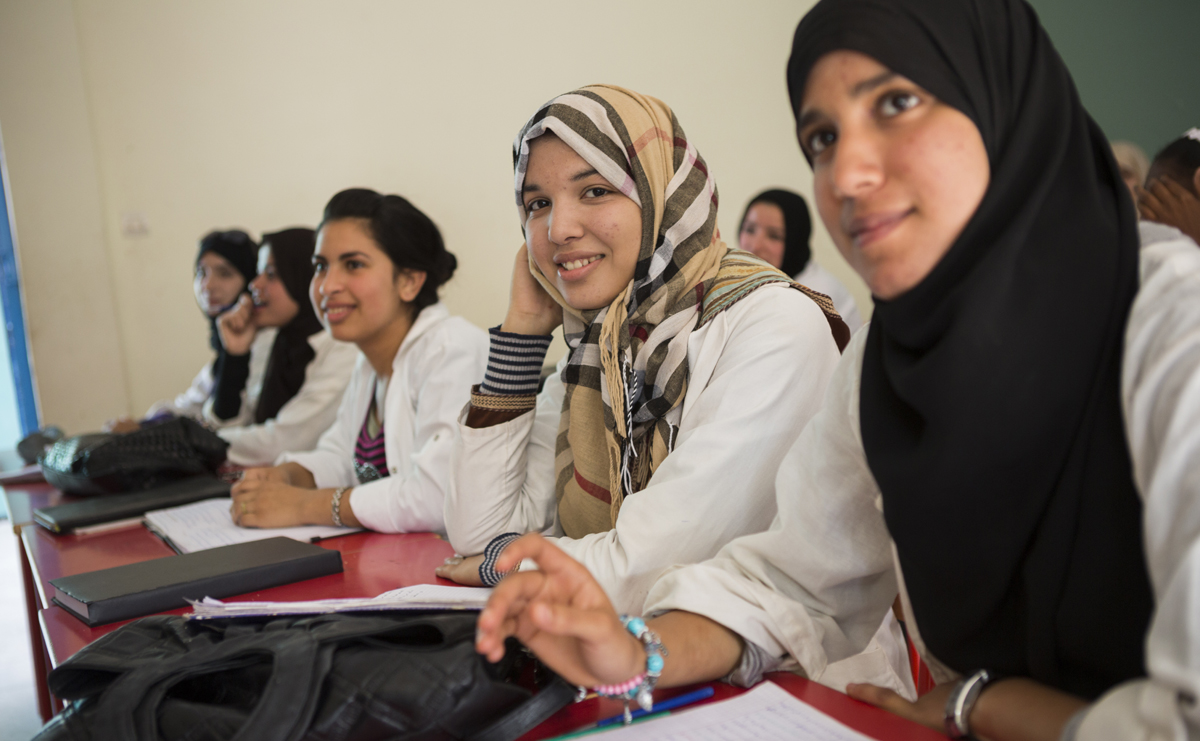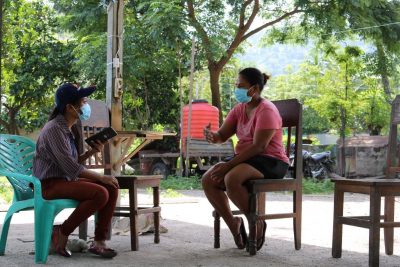Much of MCC’s work to reduce global poverty through economic growth focuses on building and improving infrastructure that helps low-and middle-income countries better access electricity, schools, water, and roads. But infrastructure alone is insufficient unless it is used by the people it is intended to benefit. Therefore, to maximize impact, infrastructure projects must also consider human behavior.
Depending on the infrastructure, the people who might benefit from using it would need to adopt specific behaviors, such as signing up for electricity, enrolling in schools, paying for water, or using new roads. Research has shown that a focus on human behavior is critical to the success of infrastructure projects and can increase the rates at which people access water or electricity or enroll their children in school.
Electrical worker servicing an MCC-funded substation

From these observations, MCC recognized that the program design process needs to include understanding why people do or do not interact with compact or threshold programs, which can comprise infrastructure, training, or policy and institutional reform. This can result in more effective motivations for people to interact with and benefit from compact investments.
With these insights, MCC launched its social behavior change (SBC) team in 2018. Since then, MCC has designed investments in collaboration with its partner countries that build vital infrastructure to improve peoples’ lives and boost economic growth, and also address the behaviors necessary for its programs to succeed.
The SBC Model
MCC uses the Capability Opportunity Motivation-Behavior (COM-B) model to change key behaviors that lead to poverty reduction and increase economic growth. Capability describes individual characteristics that affect behavior, such as knowledge and skills. Opportunity refers to outside factors that affect behavior, such as social norms and access to resources. Motivation is an individual’s desire to engage in a behavior, measured by constructs such as individual attitudes and perceived positive consequences of adopting a behavior. Each COM concept has sub-constructs, outlined in the table below.| Capability | Opportunity | Motivation |
|---|---|---|
| Habits |
Social and Behavior Change in Practice
Education in Morocco
In Morocco, most teachers use teacher-centered practices (e.g., lectures), rather than student-centered practices (e.g., dialogues and activities) despite extensive research supporting the benefits of the latter. MCC applied SBC in the Morocco Employability and Land Compact to promote teachers' use of student-centered practices. MCC first analyzed differences between teachers who were or were not using student-centered practices (categorizing them as either doers or non-doers) and found that student-centered teachers viewed these methods as more relevant to student success. However, qualitative data indicated that teachers generally believed that their use of student-centered teaching was impeded by students’ lack of motivation and ability.
MCC
MCC is working to enhance training for teachers and school administrators as part of the Morocco Employability and Land Compact.
Water, Sanitation, and Drainage in Timor-Leste
In Timor-Leste, long standing conflict leading up to independence decimated public infrastructure, including the potable water supply. The Timor-Leste Proposed Compact aims to decrease the prevalence of diarrhea and other waterborne illnesses by giving people access to potable water.MCC is helping to determine how to get people to maintain clean drinking water. MCC analyzed differences in COM factors between people who do and do not store and treat water correctly. In comparison to non-doers, people who stored and treated water correctly felt more capable of doing so effectively (self-efficacy), understood the link between clean water and susceptibility to disease (knowledge) and believed that others around them were practicing these behaviors (descriptive social norms).

MCC
SBC researchers survey households in Dili, Timor-Leste on water and waste management.

